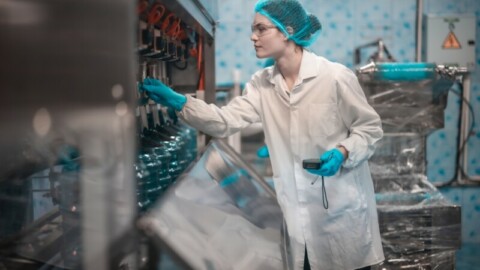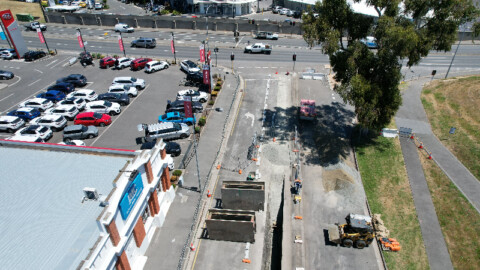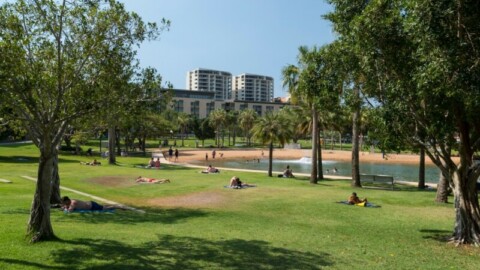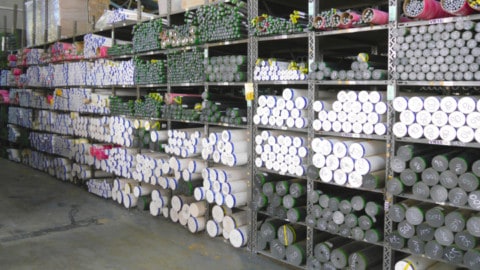An estimated $3.8 billion is set to be invested into the South West Interconnected System (SWIS) as the Western Australian Government announced a closure of all state-owned coal power stations by 2030.
Western Australia’s electricity system is being increasingly challenged by the overwhelming uptake of rooftop solar. These pressures force Synergy to offload excess power generated during the day at a loss, and add additional maintenance and generation costs, which are ultimately borne by taxpayers.
To address this, the state’s energy generation system will embark on a sensible, managed transition to a greater use of renewables, while ensuring electricity reliability and affordability continues to be paramount.
Synergy and Water Corporation are currently undertaking analysis to determine the feasibility of a pumped hydro project forming part of its storage needs. Synergy is also investigating the feasibility of using hydrogen to power its existing gas generation assets.
As part of these changes, the State Government has also committed to not commissioning any new natural gas-fired power stations on the SWIS after 2030.
Collie Power Station will close in late-2027 and Muja D in late-2029. As previously announced, Muja C’s Unit 5 will close later in 2022 and Unit 6 in 2024.
The SWIS investment, which also includes wind generation and storage will ensure continued supply stability and affordability.
By phasing out coal-fired power, Synergy’s carbon emissions will be reduced by 80 per cent by 2030, including a 40 per cent emissions reduction on the SWIS, compared to 2020-21 levels.
It is expected that additional industry demand for renewable energy will result in even greater emissions reductions on the SWIS.
SWIS will be the largest infrastructure program in Western Australia since METRONET, and will set the state up for a reliable, affordable, renewable energy future – while creating thousands of jobs in regional Western Australia.
Without the decision to retire the power stations, over the next decade Western Australia would either see major electricity price hikes or taxpayers would be forced to fund billions of dollars of subsidies to keep the system running.
Under current settings, it is estimated household electricity costs would rise from their current average rate of about $1,800 per year to more than $3,000 per year.
Alternatively, Western Australia taxpayers would be required to subsidise Synergy to the tune of almost $3 billion to 2029-30 to cover the ongoing losses of the energy provider, taking funding away from key government projects and services.
Western Australian Premier, Mark McGowan, said, “[The] reality is our current electricity system is becoming increasingly unsustainable due to the uptake of rooftop solar and growing demand for renewable options for generation.
“Maintaining the status quo would see average yearly household power bills increase by over $1,200 within eight years.
“Alternatively, taxpayers would have to spend billions subsidising the system, taking funding away from key government projects and services.
“This investment makes economic sense, as it pays for itself by 2030-31, instead of continuing to pay increasing subsidies under the status quo.”
The transition to higher levels of renewables and storage will happen in a sensible, orderly, consultative manner to ensure workers, industry and communities are strongly supported.
Household electricity prices will remain affordable, with the Western Australian Government continuing to cap prices at inflation in line with its 2021 election commitment.
A new $547.4 million Collie Transition Package will support the town of Collie over the next decade, to grow new industries and local jobs, bringing the Western Australian Government’s investment in the area to over $662 million.
The Collie Transition Package includes a new $200 million Collie Industrial Transition Fund, expanded skills and training opportunities for workers and additional job-creating investment.
Mr McGowan said the new initiatives will ensure the local workforce has the opportunity to transition into new, high quality roles in the Collie area.
“My Government is providing a new half-a-billion dollar package to support Collie through this transition – focusing on industrial opportunities to create new blue collar jobs around the town,” Mr McGowan said.
Collie-Preston MLA Jodie Hanns said the announcement was tough for the Collie community, but acknowledged it was an “important opportunity to build the foundations for the jobs of the future here in Collie”.
“I will be fighting for my community to ensure we get the best possible outcomes over the next decade.
“Since 2017 we have been planning and preparing for this transition and that early work will prove invaluable as we move into this next phase.
“We have a solid plan to do this, with the workforce and our community at the heart of everything we are doing.
“We will stand by the workforce every step of the way – with free local training, work to attract industries, and coordinated power station decommissioning to provide a pipeline of work.
“I want Collie to be held up as an example to other communities around the world facing these kinds of challenges – to show how this can be done right, support the impacted workforce, and ensure a long, prosperous jobs future for the town.”
The State Government is committed to working with coal providers to ensure security of supply through to 2030, and an orderly transition for industry, including entities that use coal in their technical processes.
The Government will also continue its work with the Collie Just Transition Working Group to implement job-creating initiatives to ensure the town has a strong future.













